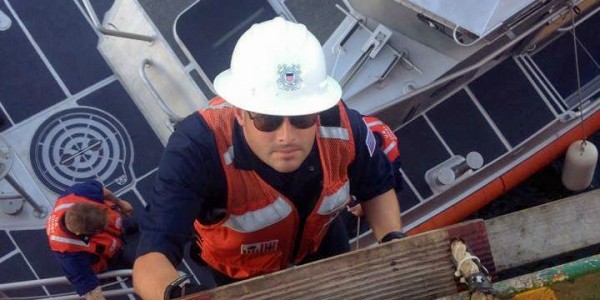Inspections under the new towing vessel inspection program are continuing during the Covid-19 pandemic, but more often using remote technologies.
The Coast Guard and its third-party partners are performing fewer onboard inspections in an effort to limit potential exposure of its inspectors and the boat crews to the coronavirus, opting instead for what the Coast Guard calls “flexible and creative” techniques that put safety first.
These approaches include video conferencing and electronic submission of photos, videos and audit and survey reports, as well as onboard visits as necessary that follow personal protection protocols.
According to Rear Adm. Richard Timme, assistant commandant for prevention policy, inspections are guided by case-by-case conversations between Officers in Charge of Marine Inspection (OCMI) and vessel operators.
A March 26 Marine Safety Information Bulletin states that the OCMI has authority to conduct in-person visits onboard a vessel as well as full or abbreviated inspections. They are also authorized to use remote techniques to verify compliance and to accept recent classification surveys, pictures, video, vessel logs and reports as credit for a required inspection or exam.
Officers may defer inspections for up to 90 days, and third party organizations performing exams for the Coast Guard can request extensions on behalf of a vessel owner or operator.
A few OICMI have told towing vessel operators that they are de-prioritizing or deferring “non-essential” inspection activities in their jurisdictions, while a few operators have been granted formal deferments, according to Caitlyn Stewart, senior director, regulatory affairs at the American Waterways Operators.
“It’s important to note that since the requirement to secure Certificates of Inspection for towing vessels is being phased in (the deadline for 50% fleet certification is July 20), and because most towing vessels that have been issued COIs to date are using the Towing Safety Management System (TSMS) option (which requires Coast Guard inspections every five years, rather than every year), towing vessel operators have somewhat more flexibility than operators of other types of vessels,” she explained.
Stewart said that vessel operators using the TSMS are already accustomed to submitting evidence electronically in the form of audit and survey reports and other documentation as part of the inspection process. The use of photos, videos and video conferencing has become especially common between operators and third-party auditors or surveyors, she added.
AWO will hold a webinar on Tuesday, May 12, to discuss remote audits and inspections with its members and third-party partners who have used virtual techniques.
As for meeting the July 20 deadline, Stewart said the Coast Guard is closely monitoring the towing fleet’s progress toward 50 percent certification, and that the number of COIs issued week to week has declined.
“At this time there has been no decision to extend the deadline, but they have advised us that when it comes to their enforcement posture, companies that have not met the deadline due to Covid-19 impacts but have worked in good faith to do so by engaging with their OCMIs and providing objective evidence will be given more consideration than companies that have ignored the deadline,” she said.
“We’re working to ensure that the Coast Guard has what they need to inform their decision-making by conveying to them what we’re hearing regarding Covid-19 effects on our members’ plans to achieve 50 percent certification by July 20,” Stewart added.
AWO President Jennifer Carpenter asked the Coast Guard in a March 18 letter to suspend all in-person inspections for at least 30 days or longer” to protect the health of inspectors and crew members.
Timme responded that continuation of maritime commerce during the pandemic was a top priority and that “commercial vessel compliance activities should, to the safest extent possible, continue in order to safeguard the Marine Transportation System and prevent undue delays now and in the near future.” He emphasized that inspections could continue using different techniques and giving inspectors flexibility to make decisions on individual cases.




